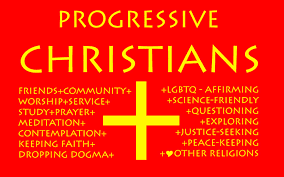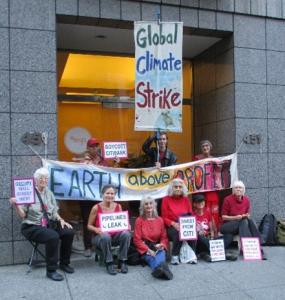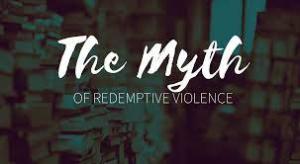Resentment vs Compassion 6
PT 3206. Part 6: Ressentiment with Compassion

Compassion is literally the feeling of another’s feeling of distress, pain, or suffering. The supra-literal connotation is that our feeling of someone else’s pain is done in the context of loving the one suffering. Authentic love evinces compassion.
Might we have compassion without love? A sadistic torturer feels the pain of the victim, to be sure. But there is no love here. Only the merciless exaction of power by the stronger over the weaker. Would we consider this compassion? Literally, yes. Connotatively, no. Authentic love and compassion are as integrated as a robin’s feathers and wings.
Resentment vs Compassion. Part 1: From Resentment to Ressentiment
Resentment vs Compassion Part 2: From Ressentiment to Reparations
Resentment vs Compassion Part 3: Russian Christian Nationalism
Resentment vs Compassion Part 4: American Christian Nationalism
Resentment vs Compassion. Part 5:” Ressentiment in the White ‘n’ Woke Unhappy Consciousness
Resentment vs Compassion. Part 6: Ressentiment with Copmpassion
Resentment vs Compassion Part 7: Christian Natiionalism’s Decline Narrative
Resentment vs Compassion Part 8: The Unhappy Consciousness Narrative
Resentment vs Compassion Part 9: To Slay the Christian Nationalist Dragon
Resentment vs Compassion Part 10: Don’t trust your pastor
Resentment vs Compassion Part 11: Christian Nationalism vs Anti-Christian Nationalism
Resentment vs Compassion Part 12:. A More Compassionate America? Trump Tyranny.
Resentment vs Compassion Part 13: Christian Nationalism versus the Vermin Curse
If you’d like more resources on Public Theology, click here.
In this series we’ve been looking at social unrest rising out of anxiety, especially in the form of Christian nationalism. The anti-Christian nationalists are more vociferous than the Christian nationalists. I ask: how do we get a grip on the reality behind the rhetoric? How do we interpret what extremist activism reveals about America? Benjamin Radford tells us to get a grip.
“Homegrown extremists who carry out attacks in and on America often do so because (according to their chants and manifestos) they fear and despise what America has become: a place where immigrants are welcomed, a country that supports gay rights and religious tolerance. It is precisely those changes, those benchmarks of American social progress, that extremists are so upset about. In short, these racists and bigots aren’t representative of America—and they know it. They are lashing out because America isn’t like them” (Radford, 2022, p. 298).
Yes, social unrest has engulfed us. Yet, some extremist protests make visible that love still abounds. Let’s not overlook this.
Our Love as God’s Love
Scientifically speaking, compassion is “a state of concern for the suffering or unmet needs of another, coupled with a desire to alleviate that suffering” (Goetz 2017, 3). Compassion is what love does.
Theologically speaking, our compassionate love toward one another is God’s work from within us. “The world receives God, the Infinite and ineffable mystery, to such an extent that [God] himself becomes its innermost life,” says Karl Rahner (Rahner, 1974-1988, V:172). The innermost mystery of the divine is the treasure from which we draw the jewels of compassion.

“I give you a new commandment,” Jesus tells us, “that you love one another. Just as I have loved you, you also should love one another” (John 13:34). According to ressentiment theorist Max Scheler, “It is the activity and movement of love which imbues life with its highest meaning and value” (Scheler 1915, 1994, 45).
Love is in the world because, as Karl Rahner says, God is self-communicating within the world. “The world receives God, the Infinite and the ineffable mystery, to such an extent that he [God] himself becomes its innermost life” (Rahner, Christology within an Evolutionary View of the World 1961-1976, 5: 172). If God is the innermost life of the world, and if God is loving in the divine self-communication, then your and my loving one another is divine in its depths.
One salient trait of loving is compassion. In compassion, we feel the feelings of the beloved. Could God love the world in the sense of feeling the feelings of you and me? Yes. This is the import of the incarnation. In Jesus Christ, says Rahner, “God assumes a human nature as his own” (Rahner, Foundations of the Christian Faith 1978, 217).
Traditionally, theologians have proffered the notion of communicatio ideomatum (communication of attributes or properties), at this point. If the divine and human attributes are exchanged in the incarnate one, then your and my distinctively human suffering becomes internal to God’s trinitarian life. In sum, God re-feels what we feel. That’s compassion at the divine level.
Hence, “We love because [God] first loved us” (1 John 4:19).
Untangling the Fettucine Strands

Oxford theologian Celia E. Deane-Drummond sorts out the fettuccini strands of compassion, pity, sympathy, and empathy. “Pity, sympathy, empathy, and compassion are often confusingly muddled” she says (Deane-Drummond 3/2017, 261). Deane-Drummond draws upon the work of philosopher Martha Nussbaum to sort out the muddle. Empathy is the human capacity to reconstruct another person’s experience while avoiding an evaluation of that person. In compassion one may make a judgment that another person is in distress and resolve to do something about it, but compassion retains judgment in the form of disgust, envy, and shame. Sympathy is like empathy and compassion, but less intense. Pity is like the other three, but pity includes a nuance of condescension or superiority. “While empathy and compassion are distinct, they work together in the moral life” (Deane-Drummond 3/2017, 260).
Direct and Indirect Compassion
Our hospital nurses act toward us with direct compassion. Nurses sympathize, empathize, and comfort. Each nurse calls us by name. They fumble with our body and almost heal us with their touch alone.
In contrast, the molecular biologist engaged in cancer research exhibits indirect compassion. The goal is clear: press scientific knowledge into the service of ending this scourge on humans. The scientist may never know your or my name let alone fumble with our body in a hospital bed. Yet, funded institutionalized cancer research is an expression of social compassion.
Thanks to the institutional dimension of human life, we who love can express compassion indirectly through church, charity, and culture. Every economic and political gesture on behalf of the global common good is an indirect work of compassion.
“Compassion is the passport to world citizenship: it inspires mercy and a politics of mercy; it inspires a willingness to turn the other cheek, execute duties without rights, benefit enemies, wrongdoers, and vulnerable others” (Gilman 2014, 149).
When we Christians gather in worship and offer up prayers on behalf of the victims of injustice everywhere in the world, we are also engaging in indirect compassion.
In his “A Liturgy for the Confession of Racial Injustice,” Patheos columnist Tim Shuttle prays—with compassion—for God’s redeeming power to right the wrongs of this world.

Ldr: In fervent hope that the arc of history does, indeed, bend toward justice, we lift up our prayers for racial healing, asking that you would bind our hearts together as a church, O Lord, empower us to break the chains of poverty, ignorance, prejudice, and despair which degrade the sacred dignity of humankind; teach us to love each other and the world around us, for your sake.
God listens to our compassionate petitions which, curiously, are coming full circle from God’s own original compassion for the world.
Righteous Resentment
When a loving person witnesses injustice along with innocent suffering because of it, resentment boils up. The first moment is compassion, re-feeling the feelings of the one suffering. The second moment is the impulse to right the wrong, to replace injustice with justice. The third moment may include churning and roiling resentment, the strong feeling that justice must be exacted!
When the Good Samaritan saw the victim of a mugging lying on the side of the road, he felt compassion. Then, he placed the wounded person on his donkey and raced to the local Good Samaritan hospital emergency room (Luke 10:25-37). No resentment in this case. But, more than likely, you and I feel resentment at the sight of injustice.
Resentment at this juncture is healthy, I believe. Why? Because, as St. Anselm said in Cur Deus Homo?, God created this world to operate according to the principles of justice. When justice obtains, then you and I as God’s creatures enjoy blessedness, flourishing, and felicity. When justice is interrupted, then we lose those blessings.
Resentment boils in us when we witness injustice robbing the cosmos of its opportunity for blessedness. Intuitively, we are re-feeling the feelings of God.
The Myth of Redemptive Violence

The feeling of resentment alerts us to our attunement to justice. Yea! Yet, when that resentment leads us to ressentiment and then mob violence, then we perpetuate the very injustice we originally scorned. Boo!
Ideology codifies the mob propensity toward violence by inserting a slight twist on justice, namely, retribution or punishment or revenge. An eye for an eye. A tooth for a tooth. “Thirst for revenge is the most important source of ressentiment,” said Scheler (Scheler 1915, 1994, 5). A mob bent on revenge in the form of a political party is a dangerous omen.
Resentment in the form of ideological ressentiment risks justifying violence by appeal to the myth of redemptive violence. This myth leads us to believe that if we engage in just one more act of violence, we’ll land in a post-violent state of peace, justice, and felicity. Beyond the battle, we will establish a utopia.
The late Walter Wink thinks “the myth of redemptive violence” is the most widespread religion because it enculturates our children and energizes our politics through television, movies, and video games. One thing that worries Wink is the idolatry implicit in believing that one final violent triumph will restore or establish what is good.
“The belief that violence ”saves” is so successful because it doesn’t seem to be mythic in the least. Violence simply appears to be the nature of things. It’s what works. It seems inevitable, the last and, often, the first resort in conflicts. If a god is what you turn to when all else fails, violence certainly functions as a god”

What further worries Wink is that our culture risks losing the aspiration of the good beyond the violence and settle for the violence itself.
“Many of these videos do not portray the age-old confrontation of good versus evil, with the ”bad guys” eventually being overcome by the good. What we find here is the sadistic enjoyment of evil pure and simple. Redemptive violence gives way to violence as an end
in itself. It is no longer a religion that uses violence in the pursuit of order and salvation, but one in which violence has become an aphrodisiac, sheer titillation, an addictive high, a substitute for relationships. Violence is no longer the means to a higher good, namely order; violence becomes the end.”
The problem is that on the other side of the so-called redemptive violence human nature will still be with us. And so will injustice still be with us. The righteous will have perpetuated the cycle of violence without having achieved utopia. It’s an old story. It gets told again and again.
 On the one hand, ideological ressentiment inspires group action on behalf of justice. Yea! On the other hand, ideological ressentiment may inadvertently perpetuate the cycle of violence in its frustrated attempt to make utopia happen. Boo!
On the one hand, ideological ressentiment inspires group action on behalf of justice. Yea! On the other hand, ideological ressentiment may inadvertently perpetuate the cycle of violence in its frustrated attempt to make utopia happen. Boo!
 Rahner weighs in here. “The life of a Christian is characterized by a pessimistic realism and by the renunciation of any kind of ideology in the name of Christianity” (Rahner 1978, 403). This means “no” to Christian nationalism. It means “no” to American exceptionalism. It means “no” subsuming realism under populist progressivism. But, of course, it means “yes” to confronting every injustice with a commitment to justice.
Rahner weighs in here. “The life of a Christian is characterized by a pessimistic realism and by the renunciation of any kind of ideology in the name of Christianity” (Rahner 1978, 403). This means “no” to Christian nationalism. It means “no” to American exceptionalism. It means “no” subsuming realism under populist progressivism. But, of course, it means “yes” to confronting every injustice with a commitment to justice.
Conclusion
Recall my working hypothesis guiding the series on Resentment and Compassion as well as the upcoming series on Measuring Christian Nationalism:
Progressive Christians Against Christian Nationalism (CACN) are displacing their anger at Donald Trump onto evangelicals by painting evangelicals with the colors of Christian nationalism. That is, CACNers blame white evangelicals for Christian nationalism.
What explains this? My answer: anxiety.
We nervously react to our own anxiety about the division between ‘us’ and ‘them’. Especially when ‘them’ rears up and lashes at our values, identities, and sense of security. We thank our progressive Christian friends for rising up to defend what is wholesome, just, and promising. Yet, we should refrain from exaggeration. At least, according to Benjamin Radford. “Outside the caricatured Them, the Boogeymen and Boogeywomen who, if you believe the media, populate the country, there are real Americans—people of all genders, races, and beliefs who are good people, who respect and often love one another” (Radford, 2022, p. 300). Compassionate love retains its rightful place in at least American society.
In this series on “Resentment vs Compassion,” we’ve been testing this hypothesis: compassion could incorporate ressentiment because both re-feel injustice.
On the one hand, when we re-feel the feelings of someone victimized by injustice, this is compassion at work. Such compassion characterizes genuine love. It is godly, because God first loved us by feeling our feelings, so to speak, in the Cross of Christ (John 3:16). When from the cross Jesus forgives his tormentors, he speaks without resentment.
On the other hand, Satan’s trick is to tempt us to feel self-justified. We know it’s godly to feel compassion. So, we try to generate this good feeling at every opportunity. The feeling of self-justification is heightened like an opiate when we add a dose of ressentiment. We become champions of justice, raring to right the wrong. This makes us dangerous, ready for mob violence against the perpetrators of injustice. Even if those perpetrators are ourselves.
As I have said, self-justification and scapegoating is as complicated as a bowl of fettuccini, where all the strands are tangled. In this series on Resentment vs Compassion, I’ve tried to untangle a few strands. Only a few. Much remains too entangled for me to unravel.
To live the Christian life, we certainly need to pray that the Holy Spirit give us the gift of compassion. And, we need to ask the Holy Spirit for the insight to perceive injustice and the zeal to right the wrong. Might we also pray for wisdom? Wisdom to bypass the temptation to self-justification and the temptation to join in mob violence that comes with ressentiment?
This post in the Resentment vs Compassion series is PT 3206. Part 6: Ressentiment with Compassion
▓

Ted Peters is a Lutheran pastor and emeritus seminary professor, teaching theology and ethics. He is author of Short Prayers and The Cosmic Self. His one volume systematic theology is now in its 3rd edition, God—The World’s Future (Fortress 2015). His book, God in Cosmic History, traces the rise of the Axial religions 2500 years ago. He has undertaken a thorough examination of the sin-and-grace dialectic in two works, Sin: Radical Evil in Soul and Society (Eerdmans 1994) and Sin Boldly! (Fortress 2015). Watch for his forthcoming, The Voice of Christian Public Theology (ATF 2022). See his website: TedsTimelyTake.com.
Ted Peters’ fictional series of espionage thrillers features Leona Foxx, a hybrid woman who is both a spy and a parish pastor. Such novels rely on the myth of redemptive violence.
▓
References
Clifford, Anne. 2011. “Creation.” In Systematic Theology: Roman Catholic Perspectives 2nd ed, by eds Francis Schussler Fiorenza and John P Galvin, 201-253. Minneapolis MN: Fortress.
Deane-Drummond, Celia. 3/2017. “Empathy and the Evolution of Compassion.” Zygon 52:1 258-278.
Fassin, Didier. 2013. “On Resentment and Ressentiment.” Current Anthropology 54:3 249-267.
Gilman, James. 2014. Christian Faith, Justice, and a Politics of Mercy. Lanham MA: Lexington.
Goetz, Jennifer and Emiliana Simon-Thomas. 2017. “The Landscape of Compassion: Deffinitions and Scientific Approaches.” In The Oxford Handbook on Compassion Science, by Emiliana Simon-Thomas, Stephanie L Brown, Monica C Worline, C Daryl Cameron, and James R Doty, eds Emma M Seppala, 3-16. Oxford: Oxford University Press.
Kelly, Casey Ryan. 2020. 2-24. “Donald J. Trump and the rhetoric of ressintement.” Quarterly Journal of Speech 106:1 file:///C:/Users/Ted/OneDrive/Documents/My%20Research/Kelly%20Trump%20Ressentiment.pdf.
Lonergan, Bernard. 1972. Method in Theology. New York: Herder and Herder.
Peters, Ted. 1993. Sin: Radical Evil in Soul and Society. Grand Rapids MI: Wm B Eerdmans.
Radford, Benjamin. 2022. America the Fearful. Jefferson NC: McFarland.
Rahner, Karl. 1961-1988. Theological Investigations. 22 Volumes. New York: Seabury.
—. 1978. Foundations of the Christian Faith. New York: Seabury Crossroad.
Scheler, Max. 1915, 1994. Ressentiment. Marquette: Marquette University Press: file:///C:/Users/Ted/OneDrive/Documents/My%20Research/Scheler%20Max%20Ressentiment.pdf.














